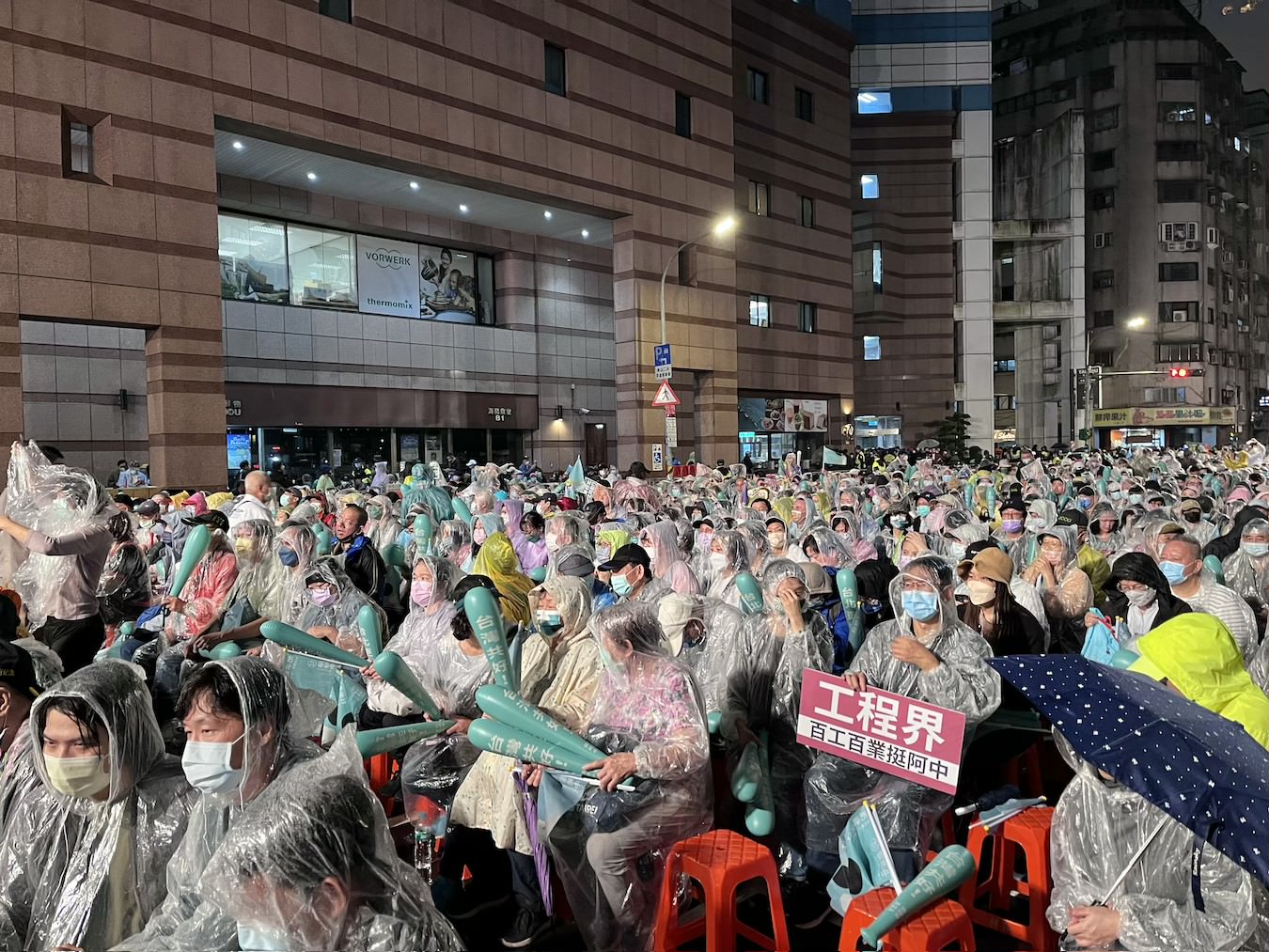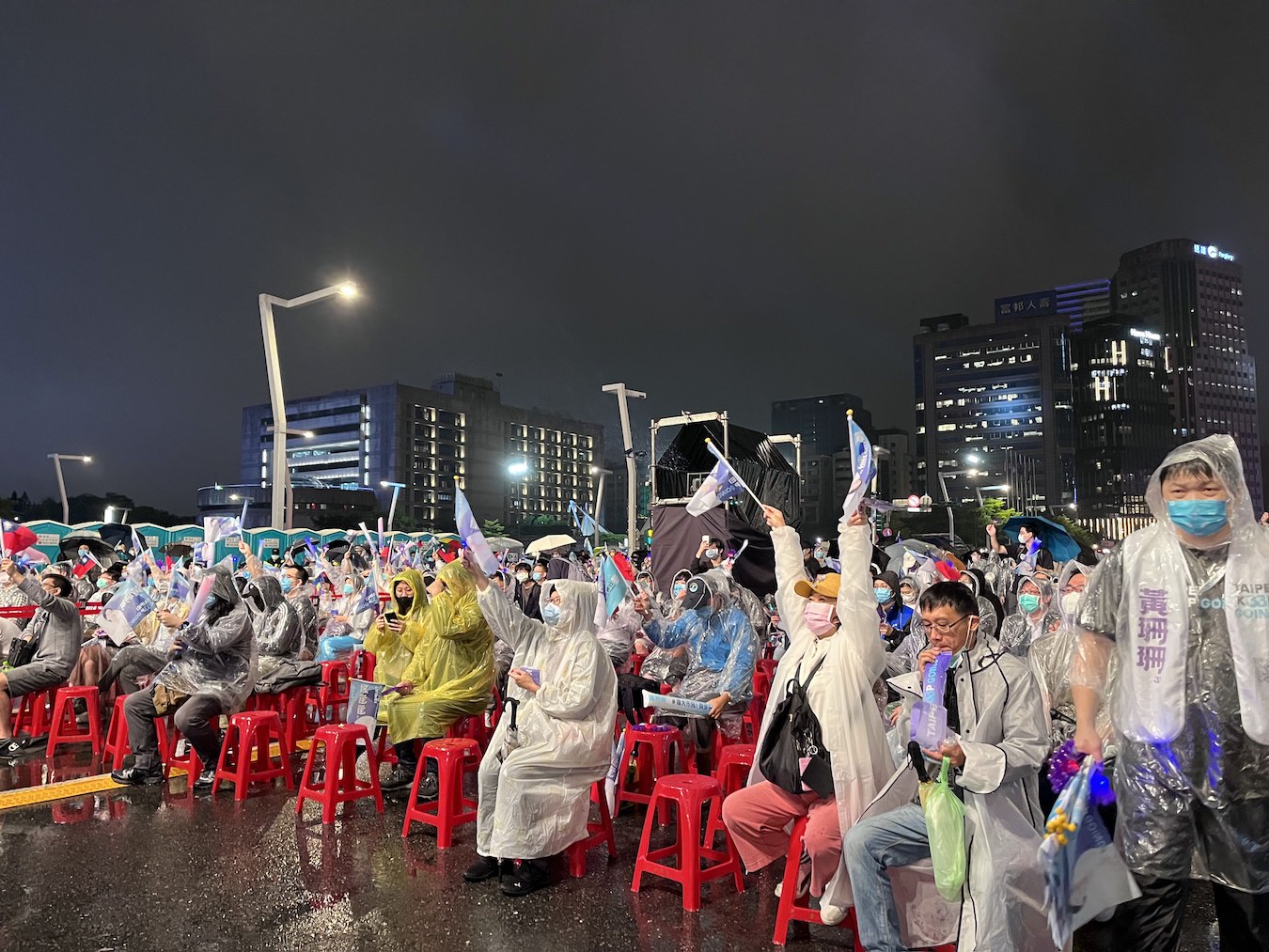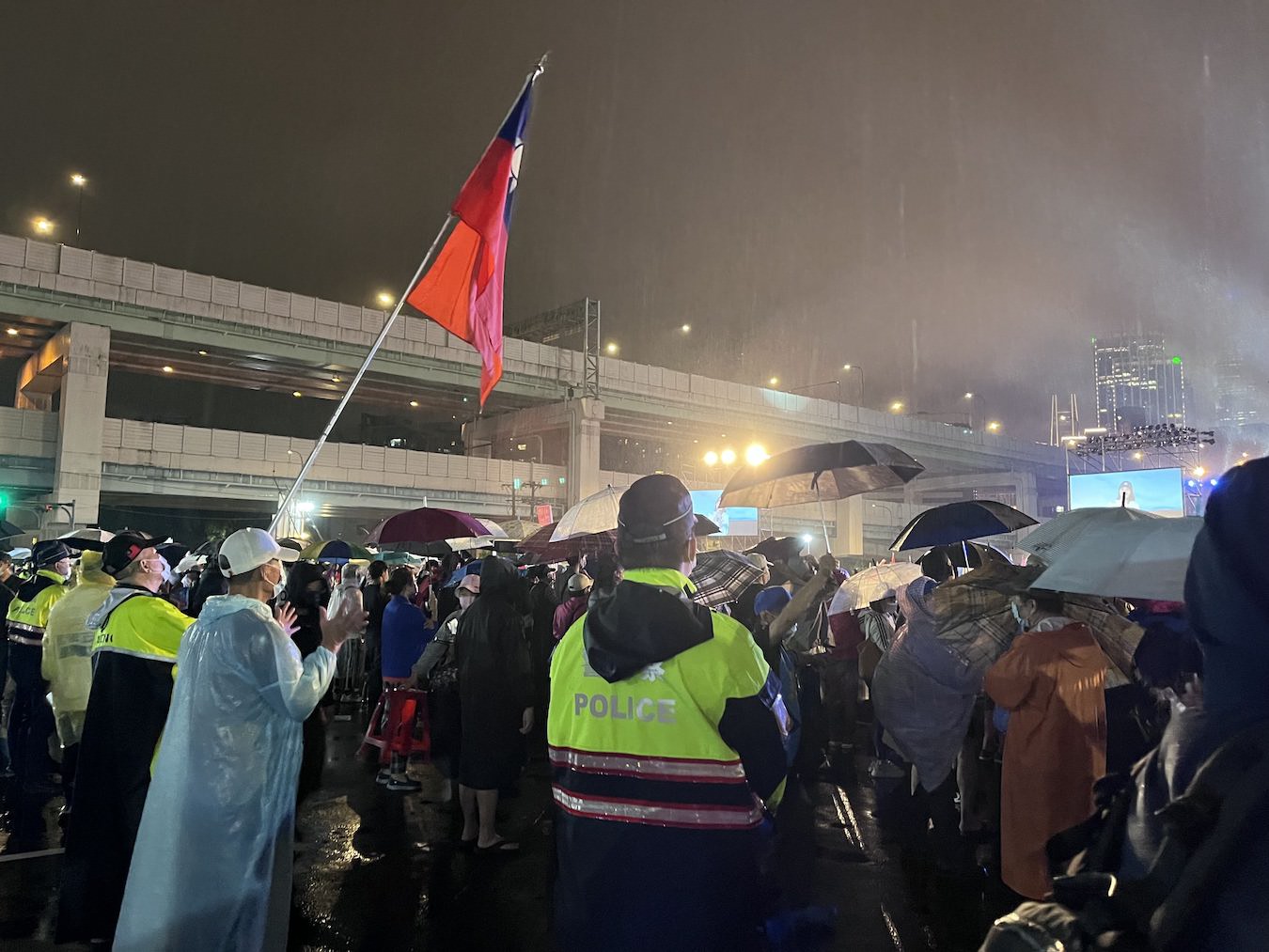by Brian Hioe
語言:
English
Photo Credit: Brian Hioe
THE RESULTS OF nine-in-one elections today resulted in the KMT regaining control of traditional territories in Taoyuan, Keelung, and Taipei, while edging out the DPP competition. On the other hand, the DPP held onto its own traditional territories in southern Taiwan in Tainan and Kaohsiung. However, the DPP clearly was unable to gain new ground or to hold onto traditional pan-Blue territory that it had captured in past years.
The victor in Taipei was Chiang Wan-an of the KMT in a narrow race with former Minister of Health and Welfare Chen Shih-chung and Huang Shan-shan of the TPP. By the time that Chen Shih-chung conceded victory around 7 PM, Chiang was ahead by 30,000 votes, with around 400,000 votes compared to Chen’s 370,000 and Huang’s 280,000. Clearly, Chen benefitted from the split vote in the pan-Blue camp between Chiang and Huang, but this was not enough.
 Chen Shih-chung rally in Taipei last night. Photo credit: Brian Hioe
Chen Shih-chung rally in Taipei last night. Photo credit: Brian Hioe
The DPP, too, was unable to retain Taoyuan, with legislator Cheng Yun-peng defeated by Simon Chang by at least 120,000 votes, with 470,000 votes for Chang to 350,000 for Cheng, as of press time. Likewise, the DPP was unable to retain Keelung, with around 96,000 votes to 71,000 at press time, with Tsai Shih-ying defeated by Hsieh Kuo-liang. The DPP was hoping to keep both, despite that Taoyuan and Keelung traditionally lean pan-Blue, because of the successes of Taoyuan mayor Cheng Wen-tsan and Keelung mayor Lin Yu-chang.
Nevertheless, the DPP was unable to do so after its initial Taoyuan mayoral candidate, Lin Chih-chien, was forced to withdraw after a plagiarism scandal that led to his withdrawal in favor of legislator Cheng Yun-peng. This hurt the DPP’s chances of holding onto Taoyuan when polling previously suggested that it would be able to before the scandal.
 Huang Shan-shan rally in Taipei last night. Photo credit: Brian Hioe
Huang Shan-shan rally in Taipei last night. Photo credit: Brian Hioe
As Lin was previously Hsinchu mayor, it is thought that this also contributed to the DPP losing control of Hsinchu, with the unexpected victory of the TPP’s Ann Kao. Kao won despite facing numerous scandals, ranging from plagiarism accusations, to infidelity, to corruption. The TPP now has a stronger hand than ever before, with Kao’s victory, and Huang’s strong performance in Taipei.
One saw a similar result in Miaoli, with the victory of pan-Blue independent Tung Chung-chin. Historically a member of the KMT, Tung ran as an independent with the support of incumbent Hsu Yao-chang of the KMT, but not as the KMT. Tung won in spite of old gang-related murder and assault charges.
Lin Zi-miao and Hsu Chen-wei of the KMT won in Yilan and Hualien respectively, though also facing corruption charges. Attempts by the DPP to attack the KMT on the issue of corruption were clearly unsuccessful. Lin faced corruption charges over the purchase of rezoned land that was originally protected land by a relative, while Hsu and her husband legislator Fu Kun-chi have long faced insider trading charges–Hsu originally became county commissioner after Fu was jailed, with Fu divorcing her and naming her deputy country magistrate.
 Chiang Wan-an rally in Taipei last night. Photo credit: Brian Hioe
Chiang Wan-an rally in Taipei last night. Photo credit: Brian Hioe
The KMT won handily in New Taipei and Taichung, with Hou You-yi defeating Lin Chia-lung and Lu Shiow-yen defeating Tsai Chi-chang. This result was largely expected, with Hou widely seen as a frontrunner for the KMT’s presidential candidate in 2024. The DPP did manage to hold onto Tainan and Kaohsiung, in spite of KMT attempts to make inroads into southern Taiwan after the 2018 victory of Han Kuo-yu in Kaohsiung.
Overall, then, one saw a restoration of the pan-Blue status quo in local politics. The DPP has long struggled with regard to local politics, which were historically dominated by the pan-Blue camp. No different with the present elections, then, though the absence of any phenomenon analogous to the 2018 “Han wave” may not make the results as much of a game-changer for the KMT.
President Tsai Ing-wen later from her position as party chair to take responsibility for the DPP’s defeats in the nine-in-one elections. This is likely to open up a power vacuum in the DPP ahead of 2024 presidential and legislative elections, affecting the DPP’s choice of presidential candidate.
Likewise, the referendum to lower the voting age passes. But with low turnout, it is thought that the odds of the referendum passing were comparatively low. It may have been a strategic error pushing for a referendum on a local election, rather than a presidential election year.

